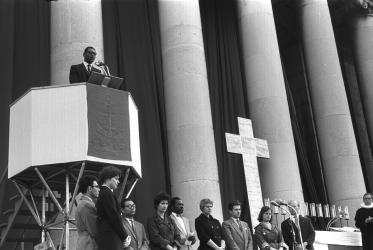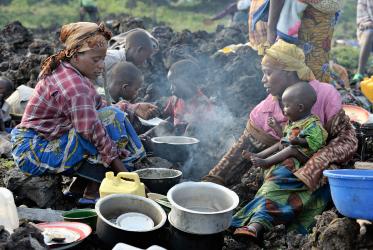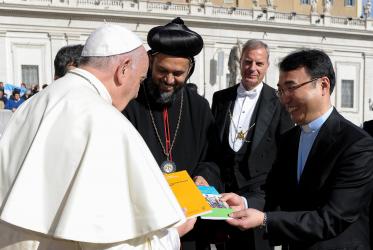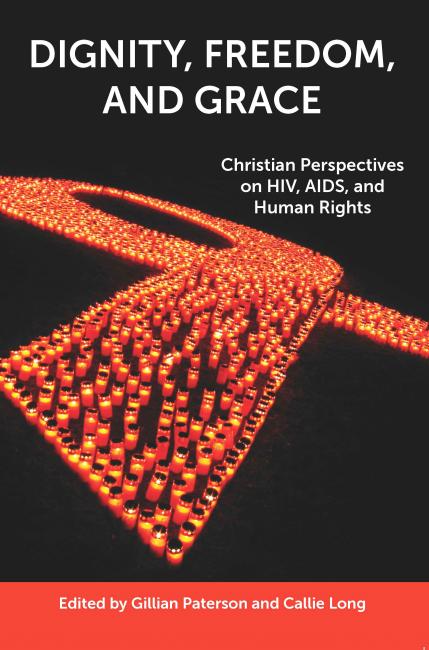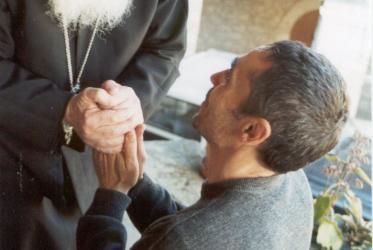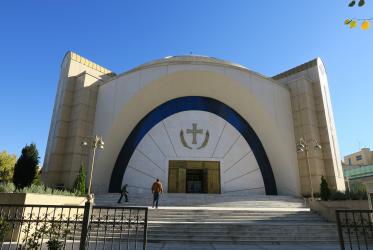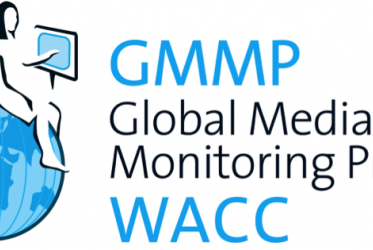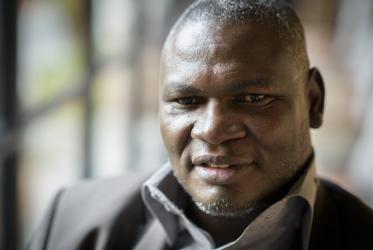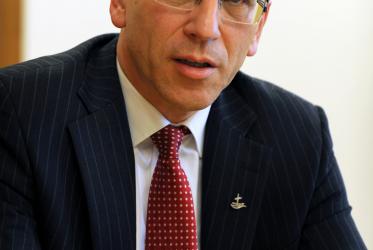Displaying 161 - 180 of 302
Pope Francis receives two publications from WCC commission leaders
26 February 2016
Rebuilding a smashed church in Albania
23 December 2015
Orthodox church in Albania resurrected
23 December 2015
In Albania, churches’ share of health care has grown in new era
23 December 2015
Women not portrayed equally by news media, shows extensive study
23 November 2015
Global media monitoring report on gender to be released 23 November
11 November 2015
Believers’ baptism provides a theme for The Ecumenical Review
15 October 2015
Les femmes, grandes oubliées des reportages sur les conflits
06 October 2015

